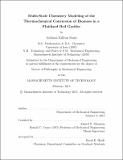| dc.contributor.advisor | Ahmed F. Ghoniem. | en_US |
| dc.contributor.author | Stark, Addison Killean | en_US |
| dc.contributor.other | Massachusetts Institute of Technology. Department of Mechanical Engineering. | en_US |
| dc.date.accessioned | 2015-07-17T19:13:46Z | |
| dc.date.available | 2015-07-17T19:13:46Z | |
| dc.date.copyright | 2015 | en_US |
| dc.date.issued | 2015 | en_US |
| dc.identifier.uri | http://hdl.handle.net/1721.1/97774 | |
| dc.description | Thesis: Ph. D., Massachusetts Institute of Technology, Department of Mechanical Engineering, 2015. | en_US |
| dc.description | This electronic version was submitted by the student author. The certified thesis is available in the Institute Archives and Special Collections. | en_US |
| dc.description | Cataloged from student-submitted PDF version of thesis. | en_US |
| dc.description | Includes bibliographical references (pages 243-254). | en_US |
| dc.description.abstract | The thermochemical conversion of biomass to fuels via syn-gas offers a promising approach to producing fungible substitutes for petroleum derived fuels and chemicals. In order for these fuels to be adopted, they must be produced in a cost-competitive way. Unfortunately, there exist a number of challenges in the chemical conversion of solid fuels to the gaseous intermediate syn-gas at an industrially relevant scale due to the complex interplay of chemical kinetics and transport processes which must be addressed to improve the feasibility of this conversion. In this thesis the multiple scales of the chemical conversion of solid biomass in a fluidized bed biomass gasifier (FBBG) as well as the influence of transport processes are analyzed and detailed models are developed capable of predicting reactor performance over a wide range of operating conditions on industrially relevant (fast) computational timescales. First, the particle scale conversion, devolatilization, is considered and a model is developed capturing the interactions of external and internal heat transfer with primary devolatilization chemistry. It is shown that the particle diameter, via internal heat transfer, plays a controlling in the conversion kinetics which is manifested in both the particle conversion time as well as the product gas distribution. This is later shown to play an important role in the gas-phase conversion of the devolatilization products, and a direct correlation is shown between particle diameter and polycyclic aromatic hydrocarbon (PAH) production in a pyrolysis reactor. Next, a reactor network model (RNM) is developed for FBBGs utilizing a detailed chemical kinetic modelling frame-work. The influence of reactor conditions (temperature, air-fuel ratio and residence times) on tar and PAH formation is elucidated, and improved kinetics are proposed that capture catalytic effects of solids on the gas conversion. This RNM is also extended to a reactor operated under pyrolytic conditions yielding good agreement with experimental results. Finally, the influence of solids-solids mixing and bubble growth in the bed on the chemical conversion in the reactor is analyzed with reactive 3D computational uid dynamic (CFD) simulations, and an improved RNM is developed capable of capturing inhomogeneity in the bed-zone. It is shown that both non-uniform devolatilization zones and oxidant by-pass in the bubble phase lead to relatively rich zones in the emulsion which are suitable for PAH formation and growth. Operational strategies are proposed for the minimization of these inhomogeneities, in order to maximize the carbon conversion eciency to syn-gas. | en_US |
| dc.description.statementofresponsibility | by Addison Killean Stark. | en_US |
| dc.format.extent | 254 pages | en_US |
| dc.language.iso | eng | en_US |
| dc.publisher | Massachusetts Institute of Technology | en_US |
| dc.rights | M.I.T. theses are protected by copyright. They may be viewed from this source for any purpose, but reproduction or distribution in any format is prohibited without written permission. See provided URL for inquiries about permission. | en_US |
| dc.rights.uri | http://dspace.mit.edu/handle/1721.1/7582 | en_US |
| dc.subject | Mechanical Engineering. | en_US |
| dc.title | Multi-scale chemistry modeling of the thermochemical conversion of biomass in a fluidized bed gasifier | en_US |
| dc.type | Thesis | en_US |
| dc.description.degree | Ph. D. | en_US |
| dc.contributor.department | Massachusetts Institute of Technology. Department of Mechanical Engineering | |
| dc.identifier.oclc | 913422327 | en_US |

